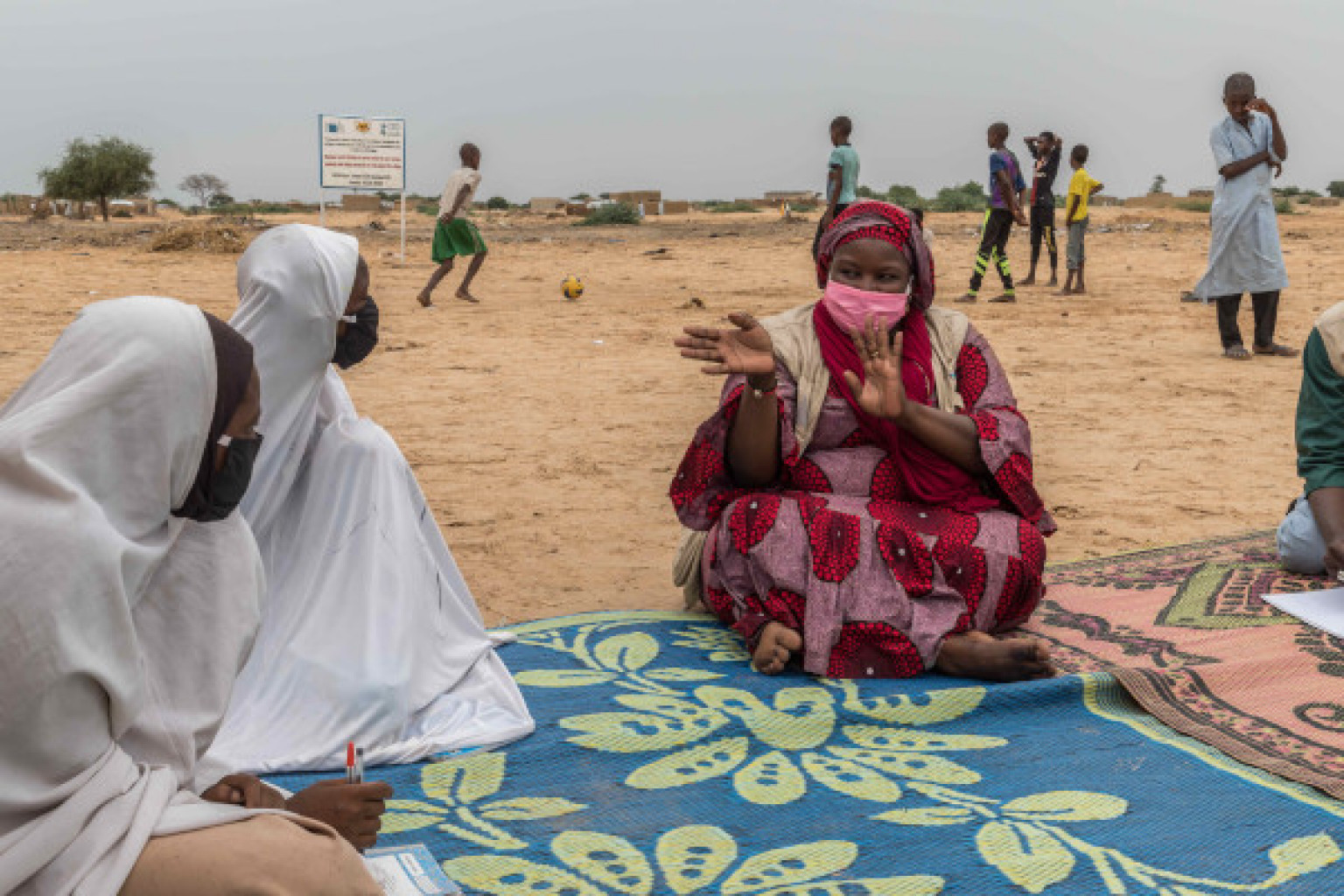03-08-2020 | di COOPI
Niger: here is what we are doing for the children affected by the crisis in Diffa
In the Diffa region (northeast of Niger), the humanitarian crisis affecting the region since 2015 has resulted in 106,925 children between the ages of 4 and 17 (51% of whom are girls) being denied access to education and protection. These children come from refugee families, internally displaced persons or from host communities but in a situation of socio-economic vulnerability (Direction régional de l'état civil - DREC Report 09/2019).
According to HNO (Humanitarian Needs Overview) data, the number of people in need of humanitarian aid in the region increased by 12% in 2020 compared to 2019, following attacks by non-state armed groups against national and international security forces and the population. In addition to this already fragile situation, the COVID 19 pandemic also led to the suspension of all socio-educational activities within the country from 20 March to 1 June 2020.
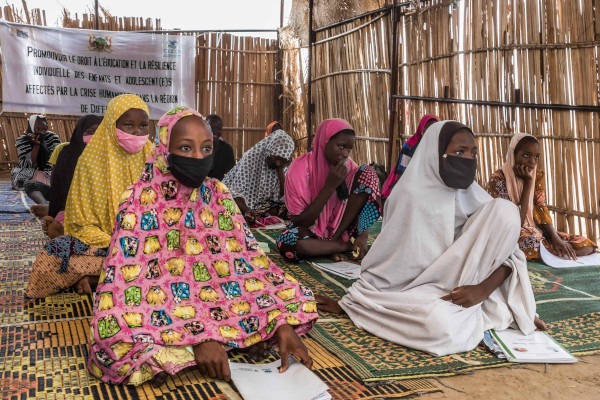
Since April 2019, COOPI has been intervening in the region with a project in Education in Emergency and Child Protection funded by European Humanitarian Aid (ECHO). The project, entitled "Promote the right to education and individual resilience of children and adolescents affected by the humanitarian crisis in Diffa Region" aims to facilitate the integration/reintegration of the most vulnerable children and adolescents, who do not go to school or have dropped out of school, into the education system (non-formal and formal ones) by meeting their cognitive and psychosocial protection needs. The action is aimed at 21 safe and equitable learning spaces called DIAP (Mobile Psychosocial Support Devices).
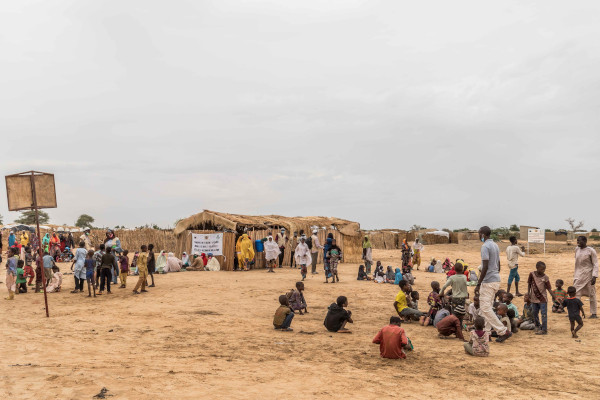
In particular, more than a year after the start of the intervention:
- 21 DIAP were built or rehabilitated and equipped with emergency latrines, furniture/school equipment and Hand Washing Devices (HWD);
- 2,551 school-age children had access to educational opportunities relevant to the emergency context (literacy, French or remedial courses). Thanks to these courses, most of them will be able to be readmitted to primary school or be included in professionalizing courses from October 2020;
- 2,590 children and adolescents located in the project's intervention communities participated in socio-recreational activities within the DIAP spaces (football, basketball, singing, theatre, art-therapy) in order to enrich their creativity and imagination, foster self-confidence and autonomy, develop relationships and cooperation with others and alleviate stress;
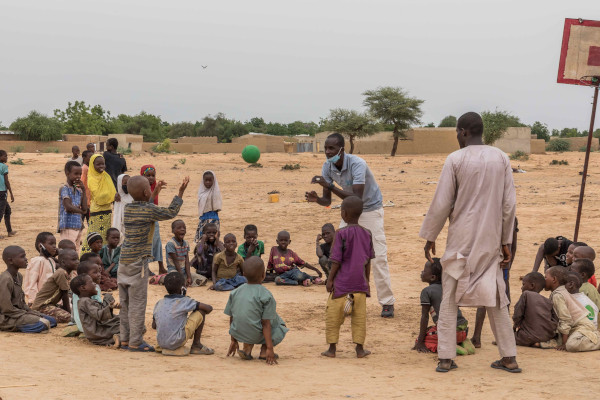
- 4,379 people (including 2,096 adults) benefited from outreach campaigns to raise awareness of the importance of schooling, prevention at COVID-19, children's rights and combating gender-based violence;
- 687 people (of whom 131 men, 153 women, 194 boys, 209 girls) received emotional support from project staff, through discussion groups and counselling. These therapeutic activities, both individual and group-based, are aimed at the children who attend the spaces as well as other members of the community. They make it possible to put difficult emotions and feelings into words; to explore emotional difficulties and stressful feelings; to offer active listening and support, with the aim of reassuring them and validating their feelings; to make people feel less guilty of what happened to them.
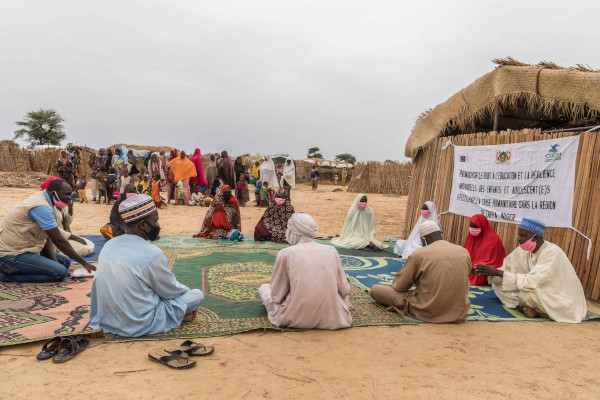
- 31 children (including 10 girls) in vulnerable situations (unaccompanied minors, separated from their families or victims of violence) have received psychosocial treatment and, thanks to reporting by COOPI staff, have been taken in charge by the relevant basic services in order to receive health, legal and protection assistance. Two of these children were also reunited with their families by decision of the Juvenile Court;
- 106 women and 9 girls, survivors of gender-based violence, received psychosocial assistance and therapy through the project and were taken over by the health, legal and police services in order to receive support and assistance.
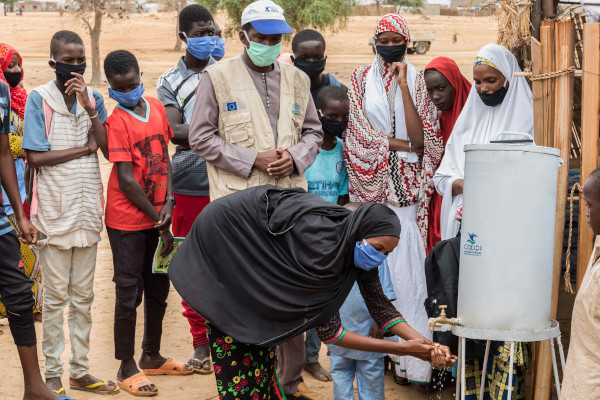
Since June 2020, all project activities are carried out in compliance with the COVID-19 barrier gestures (distribution of masks to teachers and pupils, gel and soap to be used in DIAP spaces, physical distancing in the classroom). The project will end in January 2021 and aims to reach 16,078 direct beneficiaries, of which 2559 children in school.
Photos credits: Apsatou Bagaya for COOPI/ECHO.
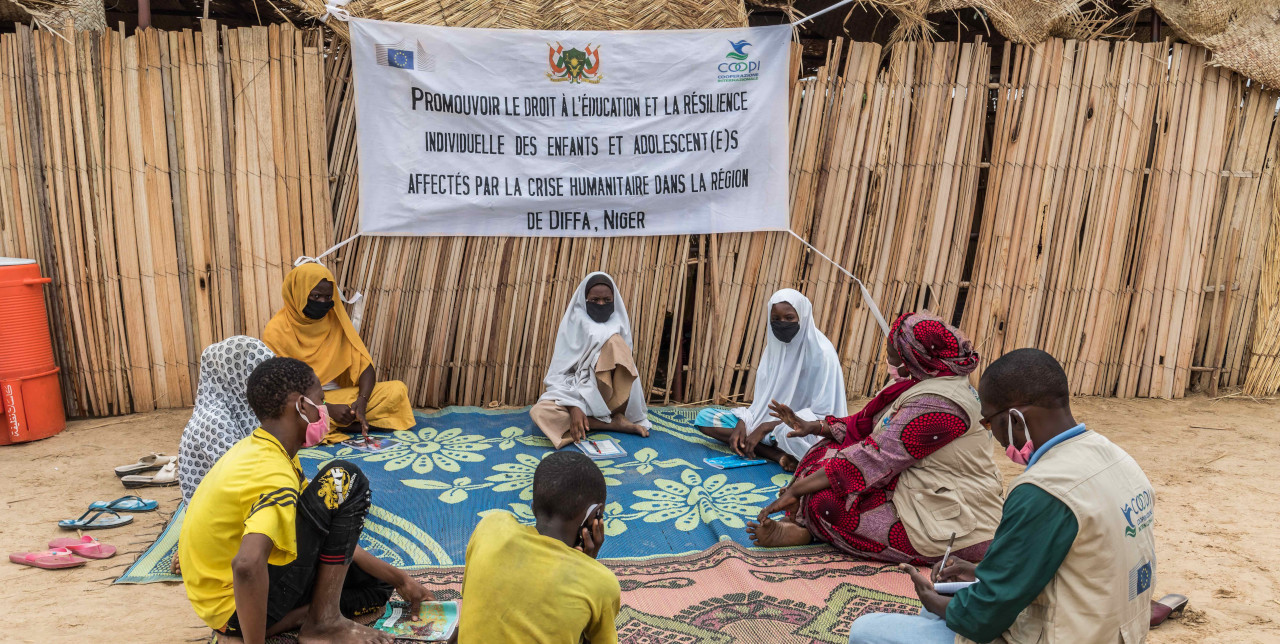



 Niger
Niger
